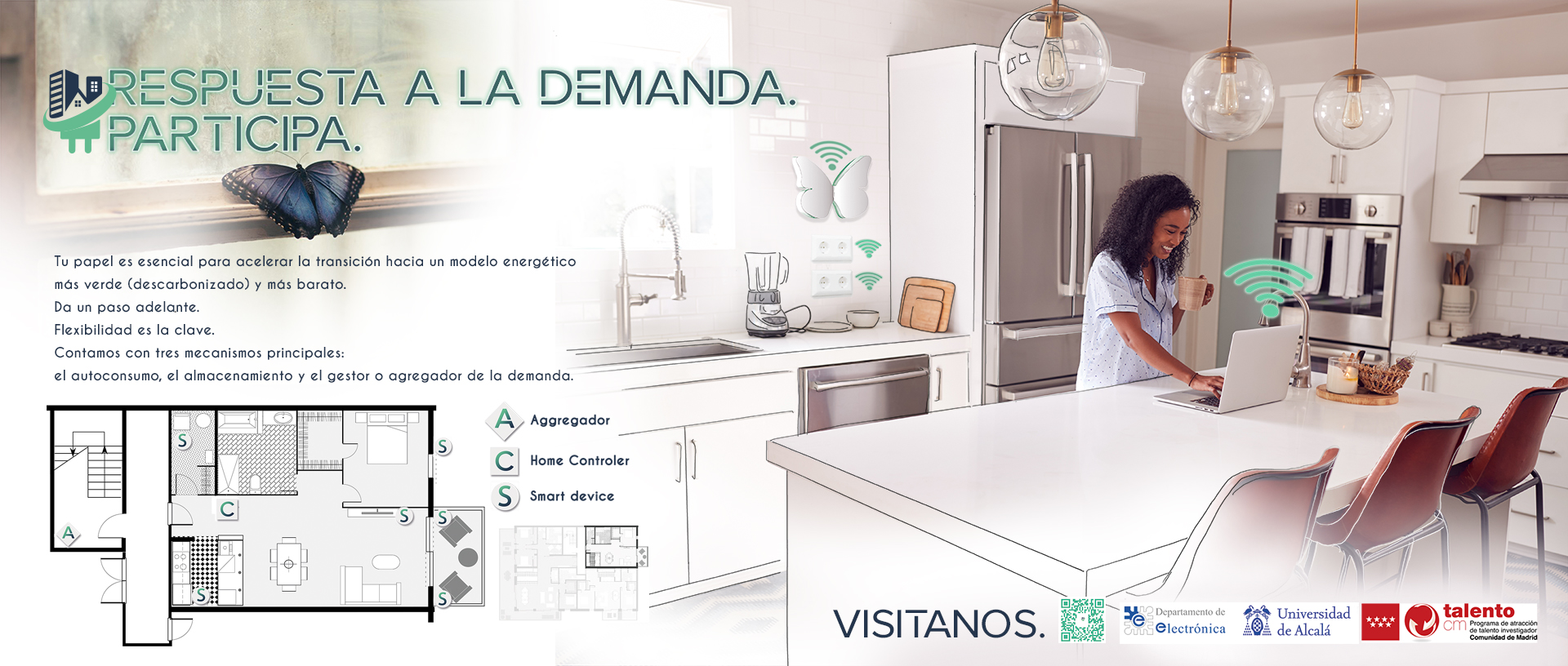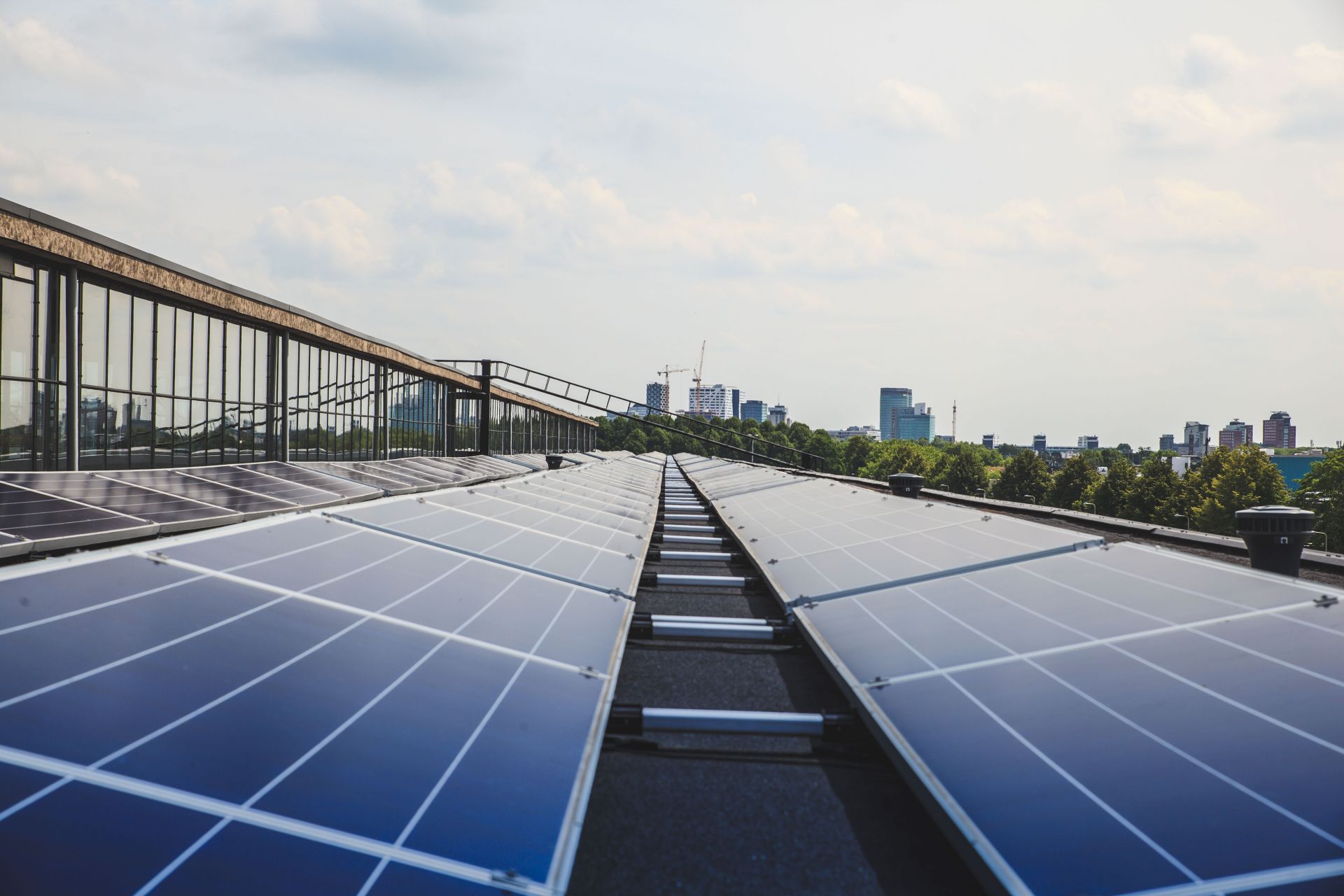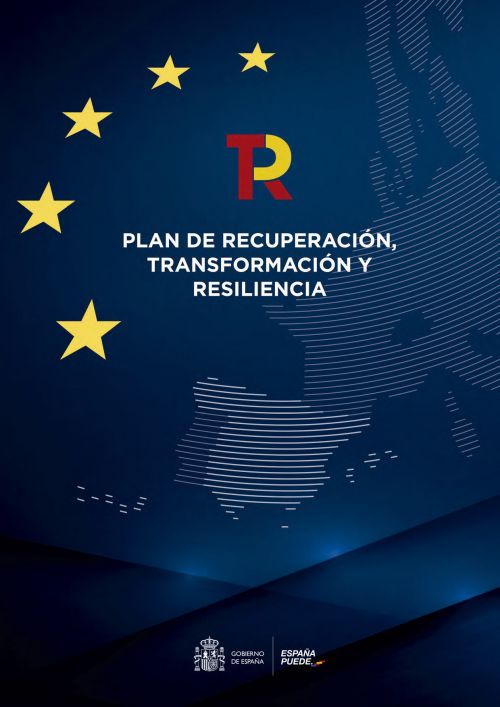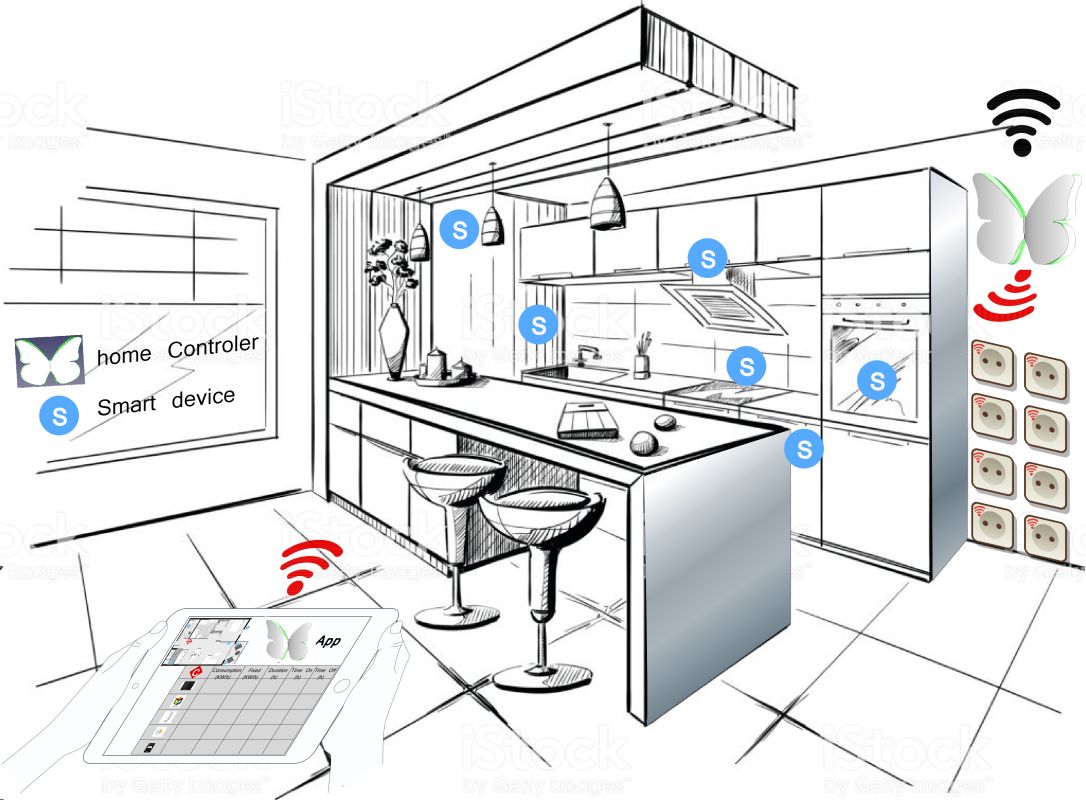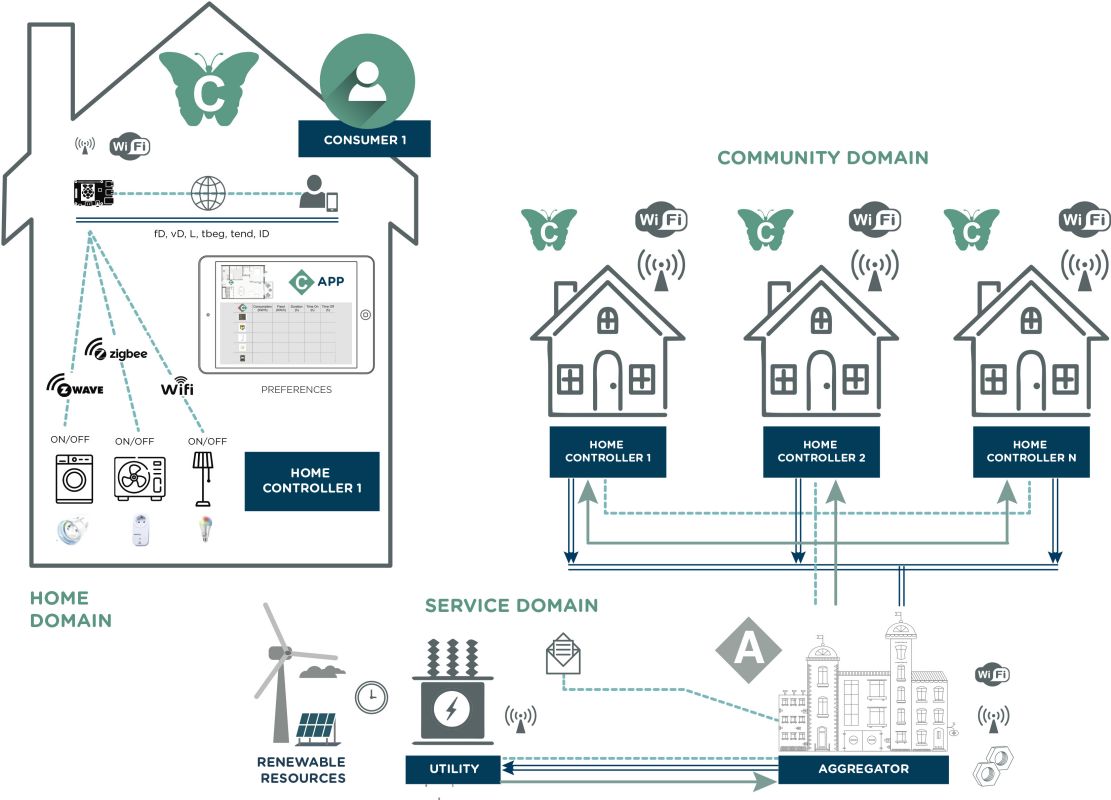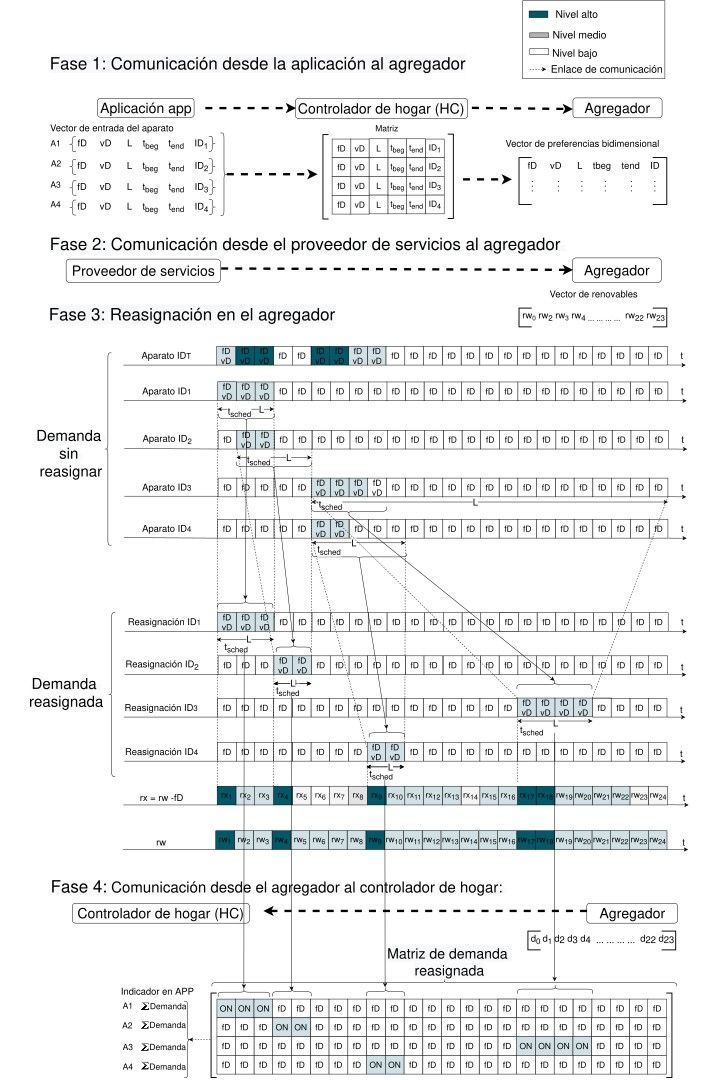Living lab demonstration of aggregated demand response scheduling that optimises renewable energy use.
Next Generation EU Recovery Plan is fighting climate change with 30% of the EU funds, the highest share ever of the European budget. Spain’s recovery and resilience plan devotes 40% of its total allocation to measures that support climate objectives. For instance, Spain’s plan includes €6.1 billion to invest in clean technologies and accelerate the development and use of renewables.
PUT-DR-2TEST project (Ref.: TED2021-132700B-I00), conducted at the Electronics Department in the University of Alcalá (UAH), promotes the application of Information and Communication Tecnologies to catapult and facilitate sustainabe energy communities at regional scale.
Through living labs, this project validates a novel demand response solution that increases residential energy efficiency and peak demand reduction by expanding grid assets as a cyber-physical system, as part of the Energy sector’s initiatives to transform the traditionally passive role of the demand.
A novel aggregation and optimization algorithm (registered at Regional Office of Intellectual Property in Madrid) implements a multiple-household aggregated electricity load scheduling system that allocates the available renewable energy supply “fairly” (according to the algorithm’s reaction to the participants’ flexibility) among the consumers.
A novel aggregation and optimization algorithm (registered at Regional Office of Intellectual Property in Madrid) implements a multiple-household aggregated electricity load scheduling system that allocates the available renewable energy supply “fairly” (according to the algorithm’s reaction to the participants’ flexibility) among the consumers.
Pilot trials on monitored consumer participants that use this project’s technical inventions and prototypes at home will throw unprecedented measures of the potential consumers’ response to DR programmes in Spain and their capability for refinement.
